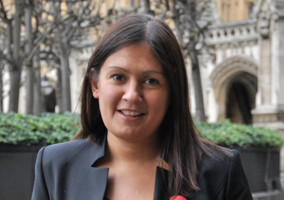Sir Stuart Etherington, chief exectutive of NCVO, has called on the new chair of the Charity Commission to set a new agenda and avoid “regulation by red top”.
Etherington was speaking at the Charity Regulation Conference hosted by the University of Salford today.
He urged the Commission’s new chair Baroness Stowell to “establish her own agenda” which should be “a different one to that of the Shawcross years”.
“For me that means being clear on what the Commission can do that no one else can do to build public trust and confidence in charities – addressing those who seek to take advantage of charity, investigating wrongdoing and maintaining a public register that the public can quickly and easily access,” he said.
He said the Commission should be clear about what it can and cannot do, and where umbrella bodies such as NCVO are better placed to support the sector.
‘Regulation by red top doesn’t work’
He called for a change in “tone and messaging” from the regulator.
“Regulation by red top simply does not work,” he said.
“I would like to see some recognition that responding primarily based on the 24-hour news agenda or the obsessions of a few social media provocateurs is not the same as plotting a strategic course and sticking to it.”
‘Charities are subject to more scrutiny than before’
Etherington also said that, in line with wider trends, charities are “subject to more scrutiny that they used to be”.
He said this has already led to reform in fundraising but that NCVO’s research, which found that only 36 per cent of respondents trusted that most charities will only contact them if they gave consent, indicates that trust still “needs to be bolstered”.
Etherington said that doing the right thing can have a positive impact for charities, adding: “Charities want to live their values in any event – by being transparent; by respecting donors’ and service users’ privacy; and behaving ethically in everything they do.”
He said the sector’s response to the Presidents Club and the Oxfam scandal showed “how much charities want to protect their reputation and maintain the public’s trust”.
“Charities face extensive challenges – both in terms of the amount of change and its speed,” he said. “But there’s also a wider need to restore public trust where it’s fallen and show charities are willing to step up to the plate. And there’s an opportunity too – because if we take action, the result should be more trust and confidence in charities, which is in charities’, and more importantly beneficiaries’, interests.”
Etherington calls on Commissioner for Public Appointments to address sector's concerns
Referring to controversy about Stowell’s appointment, he said NCVO still has concerns about the process and has written to the Commissioner for Public Appointments to ask for a meeting.
However, he emphasised the importance of separating the process from the person, saying that NCVO is looking forward to working with Stowell.
“If we can get the process right, we can hopefully lay concerns of many years’ standing to rest,” he added.
In the letter to Peter Riddell, Commissioner for Public Appointments, Etherington said that the recent concerns around Stowell's appointment had highlighted the need to reform the governance of the Charity Commission.
“For several years NCVO has argued that the process needs to be reformed in order to address the concerns that, under the current arrangement, the appointment is open to political interference and patronage,” he wrote. “This in turn creates the perception that the Commission itself is not independent from government.”
Since Baroness Stowell, a former Conservative peer and leader of the House of Lords, was announced as the new chair of the Commission, the recruitment process has been criticised by sector figures and umbrella bodies. The committee of MPs responsible for scrutinising the appointment and Labour MPs have also raised concerns.
Earlier this week the former shadow minister for civil society, Lisa Nandy, made a formal complaint to the Department for Digital, Culture, Media and Sport.
Steve Reed the current shadow minister for civil society also wrote to Riddell to request an investitigation. In his response Riddell said he was satisfied that the opinion of the appointments panel had not been overruled by ministers, but said he would examine papers relating to the competition to determine if a full review was needed.
‘Independence is vital’
In 2015 NCVO published a discussion paper setting out a range of options to give more parliament more influence in the appointment, and Etherington said any “informed discussion about this options is timely”.
Etherington said it is “vital” that the Commission is, and is seen to be, independent of politics.
“A charity regulator perceived to be political risks undermining perceptions of charities more generally,” he said. “And it is worth emphasising that perceived independence – being seen to be independent – is just as important as actual independence.”
|
Related articles











